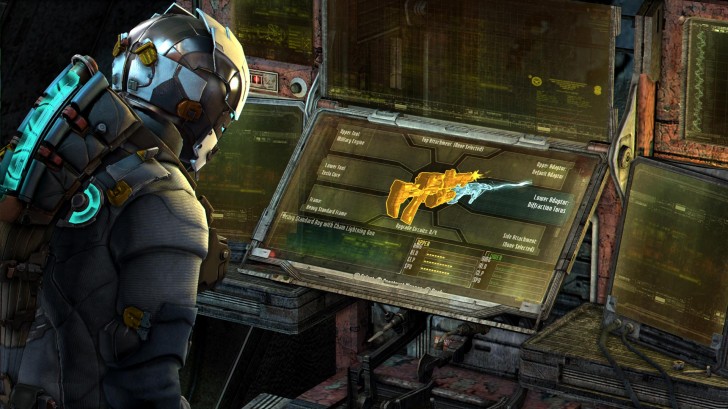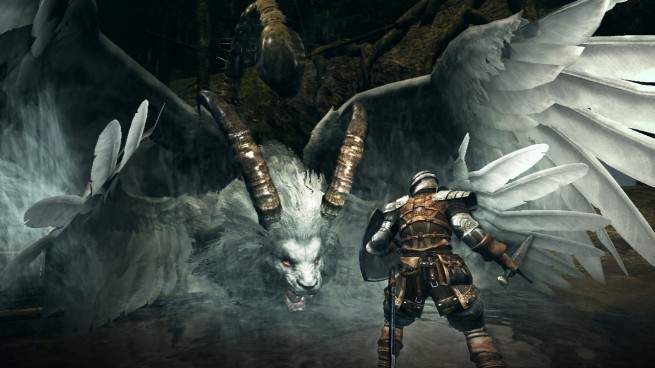This post has not been edited by the GamesBeat staff. Opinions by GamesBeat community writers do not necessarily reflect those of the staff.

Traditional console gamers are vehemently resisting a major change in the business: the increasing influence of online integration and microtransactions. The closer we get to the next hardware cycle, the more game developers and publishers seem to defend this vision of the future. Like all advances forward, the industry is probably going to stumble a lot before it, as a whole, really figures this out.
For a little while now, it seems like we’ve been looking at an all-out assault on the very idea of a video game as a singular piece of content or as a creative work for that matter. The latest stated intentions come from companies like publisher Electronic Arts and developer Crytek, which are basically saying they’re doing away entirely with the old notion in an attempt to get people to stop trading in their games, with seemingly no room for coexistence.
EA wants all of their future games to include microtransactions. Forward-looking statements like this rarely end up being 100 percent true, but I also don’t like the idea of EA moving on with a blanket approach to every game they publish. I could only imagine what Need For Speed, all EA’s sports games, and Battlefield will look like laden with microtransactions, but I believe Dead Space 3 (pictured top) was the most egregious example because of its history as an atmospheric, isolated experience with the series’ game elements focused on a narrative instead of profit in and of themselves.
Crytek’s statement that single-player games are going to disappear is just as much of a speculative blanket proclamation as EA’s. That says that the developer isn’t really going to think about whether free-to-play is really a good thing for this particular game or that particular game. I have no idea how it’d implement microtransactions into a single-player Crysis game.
Former Epic Games designer Cliffy Bleszinski recently tried to defend companies like EA, and he’s right in regard to how varied the free-to-play and microtransaction-based business models are. But very few developers have really figured out good ways to implement them. He also makes a point that, apparently, people do buy these microtransactions. The market has generally accepted them, which brings forth the point that core gamers so vehemently against these new business models are a minority. It’s actually kind of scary when you think about how only a small portion of gamers actually care about the idea of a game being a singular creative work rather than a service with which to generate revenue.
One game that a lot of people (including Bleszinski) seem to bring up as a great example of melding single-player and multiplayer is Dark Souls (pictured below). But I actually see Dark Souls as a great example of not ceaselessly pushing forward with online-connected gaming in every single product a company makes.

Maybe a reason I’ve gravitated back towards Japanese games a little bit is because Japanese developers don’t seem to feel the need to cram online into each and every one of their games. When From Software made Demon’s Souls and later Dark Souls, the company didn’t just slam token multiplayer or microtransactions into the games in order to keep people from trading them in. From Software actually thought up a genuinely unique idea for a game that happened to require an Internet connection. People have probably given Nintendo crap for not making enough online-focused games for the Wii U already, but I applaud them for simply sticking to what makes their games fun whether they be connected or not.
Maybe, however, this is because online gaming isn’t as big in the Japanese market. What is big over there is local multiplayer for handheld games as well as passive communication between devices. That’s why so many handheld games have tried out Monster Hunter-style local multiplayer features and why Nintendo implemented Streetpass as a system-wide feature in the 3DS.
Still, I think market differences like that — as well as the continuing demand for wholly single-player experiences — will result in a landscape in the next-gen consoles that’ll be a hodgepodge mix of such games alongside the fully connected ones. We already have publishers like Nintnedo, Bethesda, and Rockstar that still primarily make single-player games.
Nintendo and Rockstar can do this because their games sell well enough already. You never seem to find used copies of Nintendo games, and their prices never seem to go down at retail — even five or six years after launch. With a game that sells as much as Grand Theft Auto, you don’t really see Rockstar complaining as much about the second-hand market, either.
Bethesda is the kind of company that can put out Skyrim — a game with no online features whatsoever outside of a few rather large pieces of downloadable content — and sell over 10 million copies. You never see Bethesda complaining about the used market — likely because it made a game that people can spend 100 hours playing. Plus, you’re also probably still going to have a lot of indies releasing games of all kinds, including those strictly based around single-player.
The appearance of microtransactions and free-to-play on consoles next gen is inevitable, but what’s also inevitable is that we’ll see a greater variance of business models and price points for console games.
Originally Posted on MultiPlatform.
